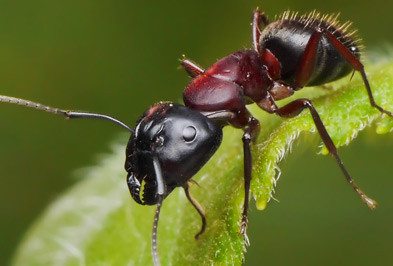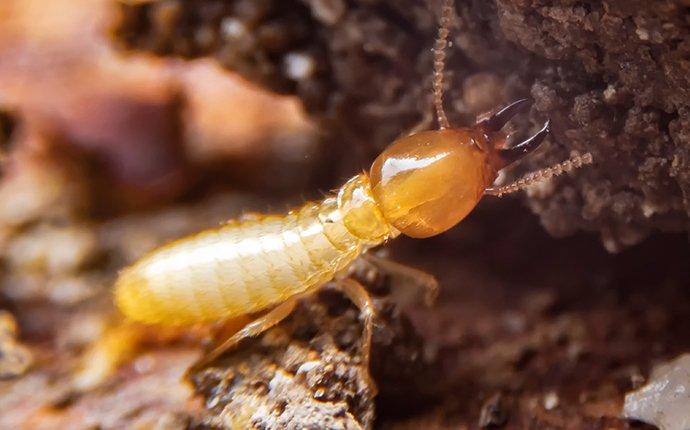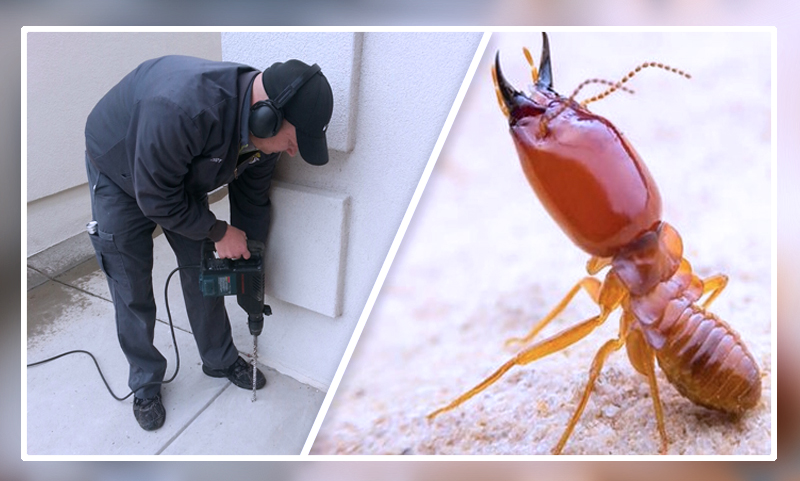Complete Ant Control: Strategies and Services to Beat Ant Problems
Complete Ant Control: Strategies and Services to Beat Ant Problems
Blog Article
Environmental Impact of Bug Control: Harmonizing Efficiency With Sustainability
The environmental effect of bug control is a crucial problem that needs a fragile equilibrium between achieving performance in handling parasites and making certain sustainability of our communities. From the use of harmful chemicals that permeate into our dirt and water to the unplanned consequences on non-target varieties, the consequences of conventional insect control practices are far-reaching.
Damaging Chemicals in Parasite Control
The utilization of dangerous chemicals in parasite control presents substantial environmental and health and wellness risks that warrant cautious consideration and reduction approaches. Insecticides, chemicals, and herbicides are generally used to eradicate parasites, however their widespread application can bring about unintended repercussions. These chemicals can contaminate dirt, water sources, and the air, affecting not just the targeted insects however additionally beneficial insects, wild animals, and humans.

To deal with these dangers, integrated parasite administration (IPM) strategies are being advertised as a much more lasting alternative. IPM involves a mix of methods such as biological control, environment control, and the targeted use chemicals as a last resource (ant control lexington nc). By adopting an alternative technique to pest control, we can decrease the ecological and health and wellness effects associated with harmful chemicals while successfully handling pest populations
Influence on Non-Target Types
Thinking about the unplanned repercussions of pest control techniques, the effect on non-target types is an important element that requires detailed assessment. While pest control measures aim to target certain pests, various other microorganisms in the environment may be inadvertently influenced. Non-target species, consisting of beneficial bugs, birds, animals, and even plants, can experience direct or indirect injury from chemical applications or biological control techniques.
Insecticides designed to deal with a certain bug parasite might damage pollinators like or natural killers such as ladybugs. Organic control agents, if not species-specific, can pose risks to unexpected targets, disrupting the environmental balance.
To reduce the influence on non-target varieties, integrated parasite monitoring (IPM) approaches that emphasize an alternative technique to pest control are recommended. These methods focus on using ecologically friendly methods, decreasing injury to beneficial organisms while successfully handling pest populaces. Carrying out complete threat evaluations and monitoring the results of insect control efforts are necessary steps in securing non-target species and promoting overall ecosystem health.
Dirt and Water Contamination
Unplanned environmental consequences of bug control approaches prolong beyond impacting non-target varieties, with considerable effects for soil and water contamination - termite control. Chemicals, herbicides, and chemical plant foods used in parasite control can leach right into the soil and contaminate groundwater, posturing a hazard to both marine and terrestrial communities.
Water contamination is another vital concern associated with bug control methods. Runoff from farming fields treated with chemicals can lug these chemicals into neighboring water bodies, influencing aquatic microorganisms and water top quality. Impurities in water sources can have significant effects, influencing not only marine life yet likewise human health with the intake of infected water or water microorganisms. To reduce soil and water contamination from bug control activities, incorporated pest monitoring approaches that prioritize sustainability and minimize chemical inputs are crucial.
Air Air Pollution From Pesticide Usage
Exposure to air-borne pesticides throughout agricultural applications presents a substantial worry for air contamination control procedures. Additionally, pesticide drift, where chemicals are brought by the wind to unintentional locations, can lead to the contamination of close-by ecological communities and water bodies.

Strategies for Sustainable Parasite Control
In the world of agricultural techniques, executing sustainable bug control strategies is extremely important for preserving eco-friendly equilibrium and safeguarding crop yields. Sustainable pest control highlights using eco-friendly techniques to take care of pest populations properly while lessening injury to non-target organisms and ecological communities. Integrated Parasite Administration (IPM) is a commonly embraced strategy that incorporates organic, social, physical, and chemical control techniques to accomplish lasting pest administration services.
One secret technique in sustainable parasite control is promoting biodiversity within agroecosystems. By enhancing natural adversaries of bugs, such as predators and parasitoids, farmers can decrease the requirement for synthetic chemicals. Plant turning and diversification are also reliable methods to disrupt pest life process and produce much less favorable problems for parasites to flourish. In addition, utilizing pest-resistant crop varieties and employing strategies like catch chopping can help decrease parasite stress without depending greatly on chemical interventions. Inevitably, by incorporating these sustainable insect control approaches, farmers can accomplish an equilibrium in between pest administration efficiency and ecological stewardship.
Verdict
In final thought, the environmental influence of parasite control techniques should be meticulously considered to stabilize efficiency with sustainability. Hazardous chemicals utilized in parasite control can bring about soil and water contamination, air pollution, and harm non-target types - termite control services. It is essential to carry out lasting insect control methods to reduce these negative impacts on the setting and promote a much healthier ecosystem for future generations
By taking on an all natural technique to pest control, we can lessen the environmental and health impacts linked with harmful chemicals while effectively taking care of pest populations.

To mitigate the air contamination created by chemical why not look here use, it is crucial to take on incorporated pest monitoring strategies that prioritize the use of non-chemical insect control approaches, such as plant rotation, natural predators, and resistant plant varieties. Sustainable bug control highlights the usage of eco pleasant approaches to handle insect populations efficiently while decreasing damage to non-target microorganisms and environments. Integrated Insect Monitoring (IPM) is a commonly taken on method that combines biological, social, physical, and chemical control approaches to attain long-term bug management solutions.
Report this page